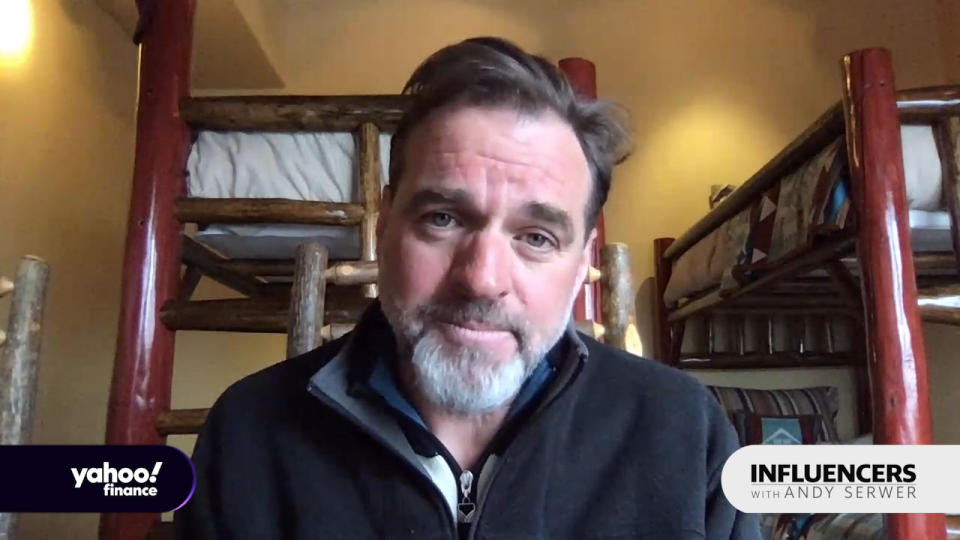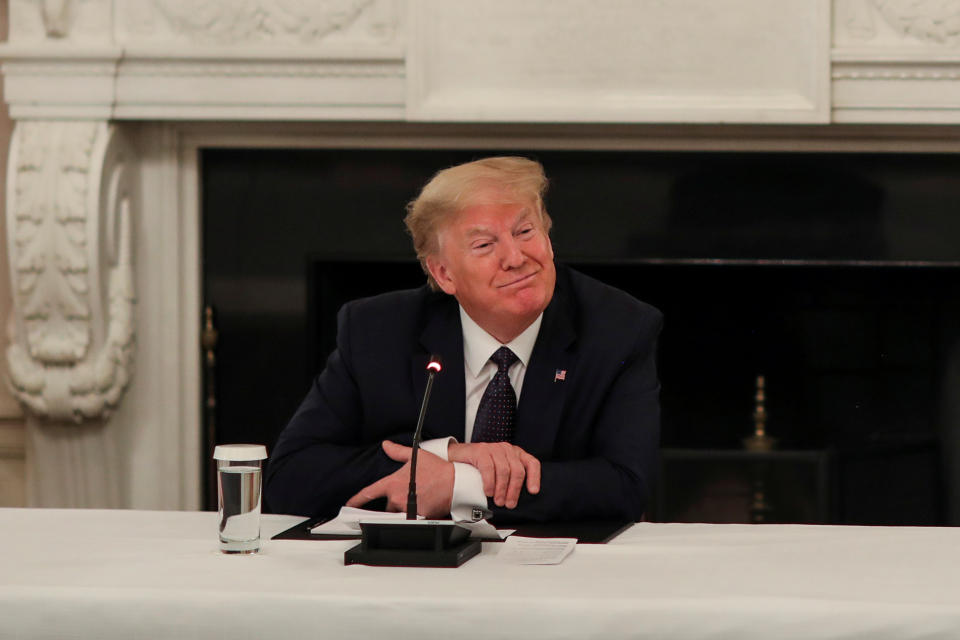Coronavirus response a 'massive policy screwup' but not Trump's fault: Niall Ferguson
The U.S. response to the novel coronavirus divides many Americans along partisan lines. Democrats criticize President Donald Trump for a mismanaged response with grave consequences, and Republicans defend him, downplaying the need for social distancing and measures that ensure it.
In a newly released interview, historian Niall Ferguson rejects both sides of the divide, condemning what he considers a disastrously slow U.S. response that led to widespread isolation and the economic damage that it wrought — while sparing Trump the blame for the nation’s botched effort.
Ferguson, who spoke to Yahoo Finance on May 14, instead faulted federal agencies and public health officials, which he says should have been better prepared for a viral outbreak.
“The real story here is a massive policy screwup,” says Ferguson, a senior fellow at the conservative-leaning Hoover Institution, based at Stanford University. “Which is going to have all kinds of unintended consequences that will be far greater in their social impact than the pandemic itself.”
“We've inflicted on ourselves a very much bigger economic shock than I believe the public health emergency warranted,” adds Ferguson, who taught history at Harvard University for more than a decade.
When asked by Yahoo Finance Editor-in-Chief Andy Serwer if the inadequate U.S. response is Trump’s fault, Ferguson demurred.
“I don’t think it is,” he said, but then acknowledged: “I mean, I don't think he's covered himself in glory, to put it mildly.”
“The president isn’t really supposed to micromanage our response to a predictable event like a pandemic,” Ferguson says, instead calling the response a “failure of the bureaucracy” in the U.S. government.
“Sure, the buck stops at the presidency,” he says. “But let's face it, in a thing as large and complex as the federal government, there is ultimately such a thing as departmental responsibility.”

Ferguson noted that epidemiologists “have said for years that the key in any pandemic is early detection and early response.”
“It wasn't a hidden truth,” he adds. “The way to cope in 2020 with a new coronavirus was with very rapid rolling out of testing and contact tracing.”
Over a crucial monthlong period — from late January to early March — after the first confirmed case in the U.S., the federal government failed to institute widespread testing for the disease, The New York Times reported in late-March. Bureaucratic obstacles, technical shortcomings, and a dearth of leadership caused the delay, according to the article, which drew on conversations with over 50 public health officials, administration officials, and others.
On May 27, the U.S. surpassed 100,000 coronavirus deaths and reached nearly 1.7 million cases, according to Johns Hopkins University.
Trump has repeatedly said “nobody” could have foreseen the pandemic though he reportedly received dire warnings as early as February. In response to criticism about the early response to the outbreak, Trump has also pointed to travel restrictions he placed in late January on foreigners who had recently visited China.

Under the Obama administration, then-National Security Advisor Susan Rice established in 2015 the office of Global Health Security and Biodefense at the National Security Council, which sought to prevent and contain global health crises. In 2018, the Tump administration disbanded the office and its senior director, Rear Adm. Timothy Ziemer, departed the administration.
Ferguson made the remarks in an episode of Yahoo Finance’s “Influencers with Andy Serwer,” a weekly interview series with leaders in business, politics, and entertainment.
Since 2016, Ferguson has worked as a senior fellow at the Hoover Institution at Stanford University. He served as a professor of history at Harvard University for 12 years prior, and has published 15 books, most recently “The Square and the Tower.”
“The coverage by the media of this crisis has been lamentable, partly because of the endless focus on President Trump and his decision making,” Ferguson says. “There's been a complete neglect of that failure that I'm talking about at the level of the bureaucracy.”
Read more:
The stock market 'not a reflection of the strength of the economy,' NYSE president says
Melinda Gates: Some governors are ‘moving too fast’ to reopen their states
‘We may need to quarantine our books' when libraries reopen, New York Public Library CEO says
Read the latest financial and business news from Yahoo Finance

 Yahoo Finance
Yahoo Finance 